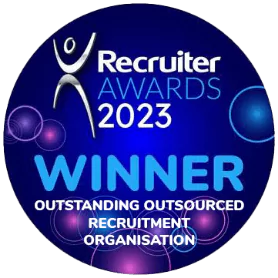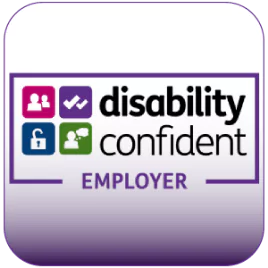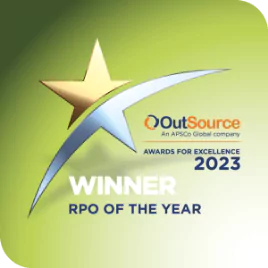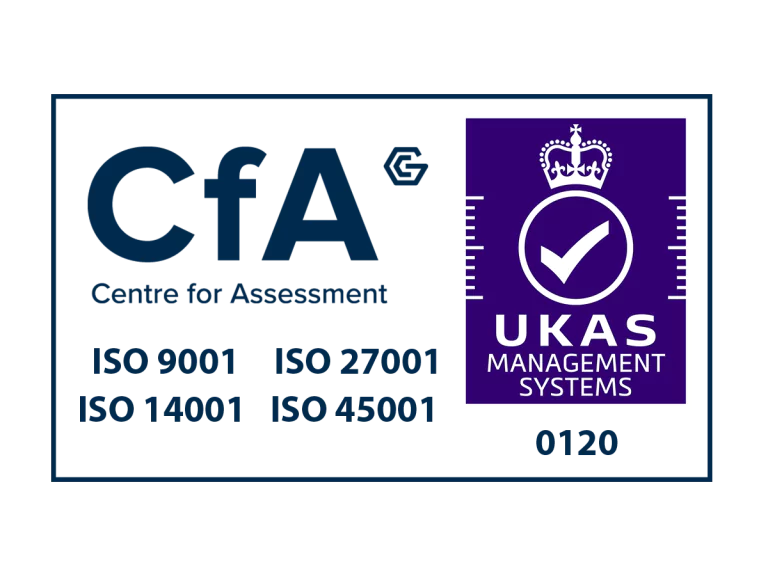Guide to Successfully Engaging a Recruitment Process Outsourcing (RPO) Company




To stay ahead in Talent Acquisition (TA), organisations need to attract top talent efficiently while maintaining agility in their hiring processes. Recruitment Process Outsourcing (RPO) is an increasingly popular solution that enables companies to scale TA resources, streamline recruitment processes, manage costs, and improve talent quality.
However, successfully engaging an RPO provider requires careful planning, clear objectives, and a strong approach to partnership. Our guide outlines the step-by-step process of selecting, implementing, and optimising an RPO partnership.

Before engaging an RPO provider, start by assessing your organisation’s current recruitment challenges and future goals. This will help you determine whether RPO is the right solution and define the scope of the partnership.
By answering these questions, you can identify key recruitment pain points and align your hiring strategy with your organisation’s strategic plans.

Once you understand your recruitment challenges, clearly define what you want to achieve through an RPO partnership. Setting clear goals will help ensure alignment with the right provider and create a structured framework for success.
To measure the effectiveness of your RPO engagement, document the outputs you are looking to achieve, such as:

When you are clear about what you want to achieve, you can consider the best way to engage your RPO partner, with models including:
Omni works closely with organisations to define the right RPO model based on their unique hiring needs, ensuring the partnership delivers measurable results. But RPO isn’t all or nothing – it is incredibly flexible and straightforward to implement.

Choosing the right RPO provider is critical to the success of your recruitment strategy. The provider should act as a true extension of your team, seamlessly integrating with your organisation’s culture, values, and objectives.
At Omni, our expertise spans scalable hiring solutions, AI-powered sourcing tools, ATS integration, and advanced analytics, ensuring efficient and cost-effective recruitment for all our long-term partnerships. As a true extension of your team, we embed seamlessly within your organisation, authentically representing your employer brand while flexing to meet evolving hiring demands. We deliver results and we have a wealth case studies and client references that demonstrate our ability to enhance talent acquisition and drive a recruitment return on investment.

Once you have selected an RPO provider, the next step is to establish a relationship and set the foundation for a successful partnership.
At Omni, we prioritise a structured onboarding process, ensuring our clients experience a smooth transition and immediate impact from the partnership.

The initial phase is crucial for embedding the RPO company into your organisation and optimising workflows.
Implementation timeframes vary between types of RPO models. Omni has stood up entire teams in under 5 weeks for Project and On-demand RPOs; while an end-to-end solution could take up 90 days to be fully operation. The point is, RPO is scalable and flexible and will meet you where you’re at and a lot simpler than you think.

Omni ensures a smooth, transparent transition, with a focus on early wins that build trust and confidence. Communication and nurturing a relationship is a priority for us at Omni.

A successful RPO engagement is not a one-time transaction – it is a long-term partnership that evolves alongside your business.
Key strategies for ongoing success:
At Omni, we do not just manage recruitment; we drive continuous innovation and long-term talent success.

A successful RPO partnership is built on clarity, collaboration, and continuous improvement. By fostering open communication, aligning the RPO team with your business goals, and tracking performance against key metrics, you can ensure a seamless and effective recruitment process. Encouraging internal teams to actively engage further strengthens the partnership, driving better hiring outcomes and long-term success.

If you answer yes to these questions, it is time to partner with Omni:
At Omni, we are ready to transform your recruitment function. Let’s start the conversation today.

RPO, or Recruitment Process Outsourcing, is a strategic approach to talent acquisition where organisations outsource some or all of their recruitment processes to an external provider.
In traditional hiring, organisations typically manage recruitment processes in-house, from sourcing candidates to onboarding. This often requires significant time, resources, and expertise from internal HR teams or hiring managers. However, traditional hiring methods can sometimes struggle to keep pace with changing talent demands, especially in industries facing skill shortages or rapid growth.
RPO offers a holistic and strategic approach to talent acquisition. RPO providers like Omni act as an extension of an organisations brand, assuming responsibility for recruitment activities such as candidate attraction, sourcing, screening, assessment, and even onboarding. By outsourcing these functions to specialised experts, organisations can benefit from industry knowledge, resources, and technology to give access to the best talent at pace.
One of the key differences between RPO and traditional hiring lies in the level of specialisation and scalability offered by recruitment RPO providers. RPO partners often have dedicated teams of recruiters who specialise in specific industries or skill sets, allowing them to access niche talent pools and identify high-quality candidates more efficiently. Additionally, RPO solutions are highly scalable, meaning they can quickly adapt to fluctuating hiring needs, whether it’s scaling up recruitment efforts during peak periods or adjusting to changing market conditions.
Recruitment Process Outsourcing (RPO) can significantly enhance your Talent Acquisition strategy by providing specialised expertise, scalability, and strategic partnership. Here’s how:
Specialised Expertise: RPO providers have dedicated teams of recruiters who specialise in various industries, roles, and skill sets. These experts possess in-depth knowledge of the labour market, industry trends, and sourcing techniques, allowing them to identify and attract high-quality candidates efficiently. By leveraging their specialised expertise, RPO partners, like Omni, can access niche talent pools and ensure high-quality people for your organisation.
Scalability: One of the key advantages of recruitment RPO is its scalability. RPO providers can quickly scale recruitment efforts up or down based on your organisation’s hiring needs. Whether you’re experiencing rapid growth, seasonal fluctuations, or project-based hiring spikes, RPO can adapt to accommodate your changing requirements. This flexibility ensures that you have the right resources in place to meet demand without overburdening your internal HR team or sacrificing recruitment quality.
Cost-Effectiveness: RPO recruitment can offer cost savings when compared to traditional hiring methods. While there may be an initial investment in outsourcing recruitment to an RPO partner, the long-term benefits often outweigh the costs. RPO can help reduce time-to-fill, cost-per-hire, and turnover rates, resulting in overall cost savings for your organisation.
Strategic Partnership: RPO goes beyond transactional recruiting by forging a strategic partnership between the RPO partner, like Omni, and your organisation. At Omni, we become an extension of your employer brand and we work closely to understand business objectives, culture, and talent requirements. This collaborative approach allows RPOs to tailor recruitment strategies that align with your organisation’s goals. By working as an extension of your HR team, RPO providers can provide valuable insights, leading practices, and innovative solutions to help achieve talent acquisition objectives.
There are several key advantages:
Access to Specialised Expertise: RPO providers have dedicated teams of recruiters who specialise in various industries, roles, and skill sets. This expertise allows them to identify and attract high-calibre talent more efficiently than internal HR teams or traditional recruitment agencies.
Scalability: RPO recruitment solutions are highly scalable, meaning they can quickly adapt to fluctuating hiring needs. Whether your organisation is experiencing rapid growth, seasonal fluctuations, or project-based hiring spikes, RPO can flexibly adjust to accommodate your changing requirements.
Cost Savings: RPO can offer cost savings compared to traditional hiring methods. By outsourcing recruitment processes to an external provider, organisations can reduce time-to-fill, cost-per-hire, and turnover rates, resulting in overall cost savings for the business.
Strategic Partnership: RPO recruitment goes beyond transactional recruiting by fostering a strategic partnership between the RPO provider and the organisation. At Omni, we work closely with our organisations to understand their organisation’s objectives, culture, and talent requirements, allowing us to tailor recruitment strategies that align with the organisation’s goals and values.
Recruitment Process Outsourcing (RPO) is a strategic approach to talent acquisition where organisations outsource some or all of their recruitment processes to an external provider, like Omni. The partner is known as the RPO provider and assumes responsibility for various aspects of the recruitment process, including candidate attraction, candidate sourcing, screening, assessments, interview coordination and onboarding.
Recruitment RPO is about leveraging specialised expertise, technology, and resources to streamline the recruitment process and improve hiring outcomes. Rather than relying solely on internal HR teams or traditional recruitment agencies, organisations partner with RPO providers to access a broader range of talent to enhance efficiency and drive better results.
The specific services offered by RPO providers can vary depending on the needs and preferences of the organisation. That’s the beauty of RPO. Some organisations may opt for end-to-end RPO, where the RPO provider manages the entire recruitment process from start to finish. Others may choose to outsource specific elements of the recruitment process, such as candidate sourcing or interview scheduling, while retaining other aspects.






